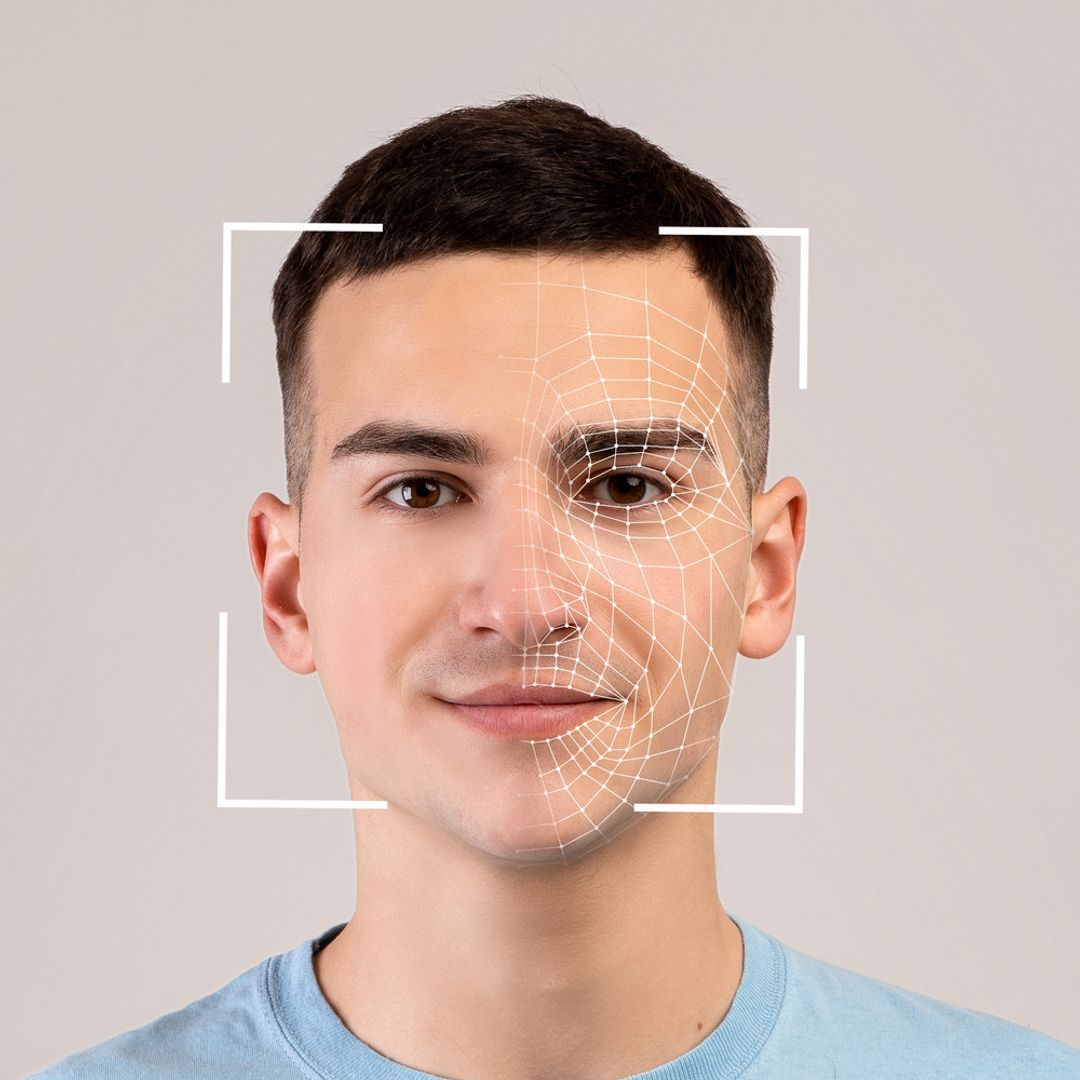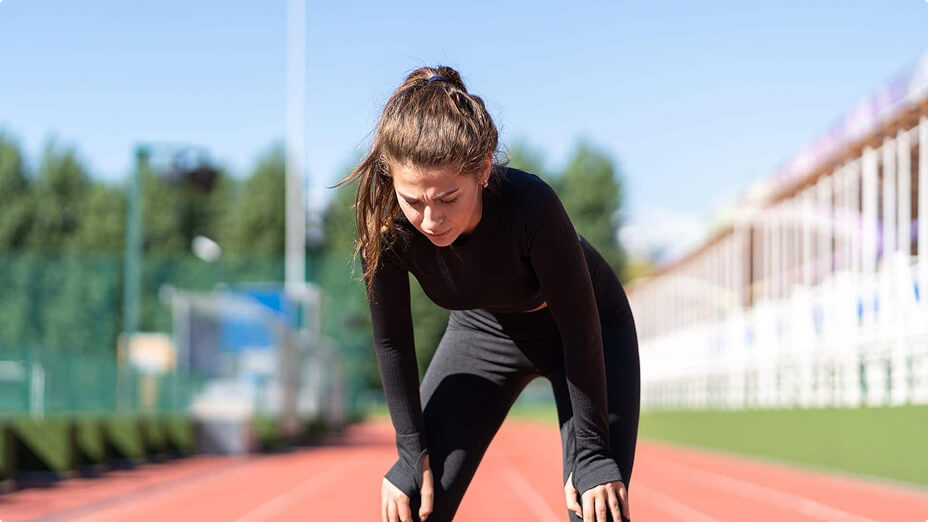Biological Age vs Chronological Age - Explained
At the most superficial level, ageing is the process of getting older. For the majority of people, their age is the uncomplicated matter of the number of candles on their birthday cake. However, from a scientific perspective, age is more complex than this – it can also be defined as the progressive deterioration of the human body and the increase in mortality.
Summary
- Chronological age is the number of years you have been alive. It is a straightforward calculation for most of us and has been used as the gold standard by the medical community to estimate the risk of specific age-related ailments and conditions for decades.
- Biological age is how old your body seems using a combination of specific physiological measurements outside of your age in years. This is a much more helpful way to assess the healthiness of people as we all age at different rates.
- Traditional medical practices do not tend to predict serious disease risks in populations with no prior signs of disease - it is standard practice to treat issues after they arise. Detecting biological age could help determine who is ageing quickly and who is not. This is a powerful tool for understanding who is more at risk of disease before conditions develop.
- There are now a huge amount of studies that show it is possible to wind back your biological clock through diet and lifestyle changes. The main focus is on following a balanced diet, exercising regularly, following good sleep habits, managing stress levels and being engaged in the community.
Introduction
At the most superficial level, ageing is the process of getting older. For the majority of people, their age is the difference between the year they were born and the current year. However, from a scientific perspective, age is more complex than this – it can also be defined as the progressive deterioration of the human body and the increase in mortality.
This may seem a bit of a morbid definition of the term, but anti-ageing experts are now exploring new ways to look at ageing. For example, a 20-year-old may not be as healthy as another person of the same age.
We can all have varying degrees of health. To better understand the vast health differences among individuals of the same chronological age, experts are starting to look at biological age instead.
As you grow older, you will want your biological age to be lower than your chronological age. To determine your biological age, you will need to use a biological age calculator, such as the GlycanAge test. Once you have your results, you'll be invited to a consultation with a specialist, who can help you plan out some lifestyle changes to help lower your biological age and support overall well-being.
Continue on to learn more about the differences between chronological age and biological age and how to take years off your results.
Chronological Age vs Biological Age

What is Chronological Ageing?
As you probably guessed, your chronological age is the number of years you have been alive. It is a straightforward calculation and has been used as the gold standard by medical professionals to estimate the risk of specific age-related ailments and conditions.
The sad truth is that the risk for cardiovascular diseases, chronic and neurodegenerative diseases, and most types of cancers increases with chronological age. There is then the increased risk of geriatric syndromes like frailty and immobility, not to mention diseases like osteoarthritis, Alzheimer's and dementia.
What is Biological Ageing?
Biological age delves beneath the surface to measure how quickly or slowly the body is ageing internally. This is influenced by much more than just time, with one important aspect being your lifestyle.
Unhealthy habits can accelerate the process of biological ageing, while a healthy lifestyle can slow it down, promoting a more vibrant and healthier ageing journey.
Biological age calculations can be accurate predictors of both health span and life span. The key is knowing how to measure biological age test accuracy.
Differences
Although researchers know that disease risk increases with chronological age (along with the decline in physical and mental functions), the rate it happens differs massively from person to person. This is due to the vast number of factors that make up the ageing process – including genetics, lifestyle and the environment.
The difference between chronological and biological age is that chronological age is simply how old you are in years. However, it is possible to get a more revealing insight into your health status through biological age rather than chronological age. Your biological age is determined using a combination of specific physiological measurements outside of your age in years.
For example, a person who is chronologically 35 years old but whose biomarkers are closer to the resemblance of an average 45-year-old would indicate that the individual is ageing at a faster rate than expected. Biological age looks at the pace of ageing and helps determine your current health levels while helping predict your lifespan.
The majority of health professionals agree that there are benefits to measuring biological age. However, there have been challenges when it comes to deciding which factors to assess when calculating it.
Some academics define biological age as a marker of "ageing, stress, and frailty." They analyse factors like molecular inflammation markers, sleeping difficulties, and smoking.
Others maintain that the three aspects of ageing should consist of survival or mortality, your capability to function, and the requirement for therapies or interventions to extend your health span.
However, the best way to measure biological age is to focus on:
- Constant, low-grade inflammation which arises without any known reason
- Dysfunction at the cellular level, including dysfunctional telomeres, protein aggregation and DNA damage
- Stem cell changes inhibit the capability to mend or replace tissue
- Cellular ageing, in which cells' ability to proliferate and certain metabolic activities are altered
Agreeing on a single measurement for biological age is more complicated than counting years. However, researchers have established that, regardless of which factors are applied when measuring biological age, for the calculation to be considered viable, it should:
- Generate measurements that are realistic and are within the limits of a documented lifespan
- Be able to detect individuals who are at risk before they develop a syndrome
- Predict age-related biological and functional outcomes more effectively than chronological age
- Predict remaining longevity and mortality in populations in which 90% of individuals are still alive
When it comes to how GlycanAge calculates biological age, we determine your results by assessing the state of your immune system and inflammation. First, we analyse the glycans (sugar molecules) attached to the most common antibody in your blood – Immunoglobulin G (otherwise known as IgG). The type of glycans bound to your IgG can change the function of IgG from pro-inflammatory to anti-inflammatory and vice versa.
You need both processes for a robust immune system, but the balance between them will determine your general health status and, consequently, your biological age.
Why Is There A Focus on Biological Age?

Understanding the breakdown of biological ages within specific populations can help provide some insight into the health of the group's future.
With detailed biological age reports, it may be possible to better understand the rate at which a group is ageing and determine whether they are becoming healthier or if their lifestyle choices are prematurely ageing.
One of the main reasons why the study of biological age is so important is because many aspects are within our control. We may not be able to change the genetic factors, but many of us can control eating a healthy diet, exercising, sleeping, and generally living the healthiest lifestyle possible.
Traditional medicine has not been great at accurately predicting serious disease risks in populations with no prior signs of disease. As it has been for decades, it is still standard practice for many practitioners to treat issues after they arise. Therefore, detecting biological age could help determine who is ageing quickly and who is not.
This could be a powerful tool for determining who is more at risk of disease before developing the condition.
Factors That Determine Biological Age
As we've mentioned before, your lifestyle choices can help you age at a slower pace.
Diet
Finding the right diet for your body's needs might not be as simple as you think. There are a lot of trendy diets like the Mediterranean diet, Keto, caloric-restriction diet, Paleo etc. But how do you know which is the right for you?
We need nutrients like protein, fat, carbs, fibre, vitamins and minerals on a daily basis, but the amount varies from one person to another. Our research showed that there is no one magic diet that works for everyone.
Our bodies have different needs, that change over time, so experimenting with different diets is a must.
Stress
None of us can lead a stress-free life, but we can control the way we react to stressful situations. Good stress management is essential for a low biological age.
Look for techniques that work for you, that can be speaking to a therapist, meditation, yoga, spending time with friends or in nature, lowering your screen time and so on.
Exercise
Regular physical activity is another critical component of a healthy lifestyle. Exercise can have numerous benefits, from boosting your cardiovascular health to improving your mood, all of which can potentially help reduce your biological age.
Sleep
Sleep helps us repair any damage done to our bodies. During this time, our bodies engage in cell regeneration, hormonal regulation, memory consolidation, inflammation regulation and stress management.
Just like with any other lifestyle intervention mentioned here, if you're having sleep problems, you can always reach out and let our specialists help you.
Environment
The location you live in might be ageing you at an accelerated pace, especially if you live in a place with poor air quality. This and other types of pollution can lead to chronic inflammation, which is why you should limit your exposure.
Smoking
We all know that smoking is bad for us, but we have some good news. Research shows that once you stop smoking, you can reverse all the damage it has caused to your biological age.
Is It Possible To Reduce Your Biological Age?

Unless you are trying to buy a drink on your 18th birthday, you probably do not want to age at a faster rate.
Luckily you can reverse the ageing process through diet and lifestyle changes.
Lifestyle factors greatly impact how your genes are ultimately expressed, and your habits can even impact your biological age more than your genes do. By following a few healthy practices, you can decrease your biological age. For example:
- Balanced diet
- Regular exercise practices
- Effective sleep habits
- Stress management
- Exercise regularly
- Be sociable and engage in the community
You should now understand that the classic saying "age is just a number" is true. Through the scientific movement, you have two ages, and the one of your birthday cake is not the one that actually matters when it comes to your health, longevity and well-being.
Take Control of Your Biological Age
Although it is impossible to turn back the clock in terms of your chronological age, it is possible to reverse your biological age by making smart diet and lifestyle choices. With the support of GlycanAge, the best biological age test it's possible to start improving your biological clock results to support healthy ageing. We understand that the ageing process is complex, as we are experts in anti-ageing research.
Frequently Asked Questions (FAQs)
What is the difference between biological and chronological age?
Your chronological age is the total number of years you have been alive. However, your biological age is how old your body seems, based on various factors – including how your chromosomes have changed over time through looking at glycans. Biological age is also sometimes referred to as physiological age.
Why is my biological age higher than my actual age?
Once you get your results back from a biological age test and it comes back higher than your chronological age, it may mean there has been some damage to your cells, and your body is ageing prematurely. However, there is no need to panic. It is possible to make lifestyle changes and work on improving your results.
Can you reverse your biological age?
Although it is impossible to change your chronological age, it is possible to reverse your biological age. Through some diet and lifestyle changes, biological age results can be improved. For example, eat a healthy balanced diet, stay hydrated, maintain decent sleep habits and manage stress levels.
What are the four types of age?
Most of us know our chronological age, but how we age is different for everyone. Age can be categorised into four types: chronological, biological, appearance, and mental. When looking at the concept of successful ageing, all four categories can be assessed, but not all four can be controlled.
How do you slow down biological ageing?
Researchers have identified five natural ways you can help slow down biological ageing. These include physical exercise, mental exercise, sleep, community, food and supplements. If you are concerned that you are ageing prematurely, reach out to GlycanAge to get your biological age calculated and find ways you can improve your wellness choices to ensure you age well.


